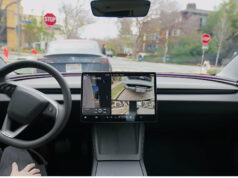By Tony Samson
In a perfect world for investors and economists a country that is boring and predictable happens to be the best candidate for a lasting investment commitment. Think of Switzerland and Singapore. These two countries hardly make the front pages of international news for wild swings in economic policies, sudden changes in leadership (their sound system seems to have the right speakers), or incidents involving high body counts.
Predictability, which is the first cousin of consistency and dependability in the enforcement of laws and their interpretation by the different agencies of government, generates planning scenarios where the worst case is limited to lower profits, and not the closure of business or the disappearance of the CEO.
The traits of boredom and predictability are ingrained in the rules which include the legal system of contracts and obligations, the business culture of punctuality and high service expectations, and simplicity in dealing with government rules and regulations.
Of course, tourism campaigns veer away from the predictable with their hint of adventure (more fun in the Philippines). They hew closer to the attributes of a blind date by promising variety (surprise me) and the promise of the unexpected. Would you like to have lunch with someone who is introduced as boring and predictable?
Even in a milieu where “disruption” in any seminar title ensures a full house, the source of the grating interruption is expected to come from competition, technology, or the rise of a new business model (like the sharing economy upsetting hotels and taxicabs). Disruption is not expected from the regulatory environment arising from changing bidding rules midstream, favoring one industry player over another, or closing a whole tourist area.
A reputation for predictability is earned. Countries need to display the art of being boring. Their news media do not feature corruption scandals, fraud involving a bank executive, political invectives, unidentifiable corpses on the streets, or even family feuds.
If there are unpleasant events covered, these are only reported when they happen in neighboring countries. Only other countries offer unpleasant surprises. People on the street of boring countries seem to know where they’re going and do not loiter aimlessly or knock on car windows to cadge tips for wiping these with wet rags. And to the question on what there is to do at night? Maybe dining out or watching an old play are on top of the list.
How does a country advertise its lack of excitement, especially of the wrong kind? Can it boast outright of its embrace of ennui? Can someone pitching for an acceptable sovereign risk win with a slogan of “we put you to sleep…soundly”?
The attractions offered by being boring and predictable have hardly been appreciated. Such attributes are seen negatively. Who wants to be described as unexciting and dull?
The ease of doing business implies that when you apply for some government permit (say, to open a restaurant) and you fulfill all the simple requirements in a prescribed format, you can have a ribbon-cutting ceremony in three days and serve your favorite lemon meringue cake. Meeting expectations routinely can be boring. Where’s the challenge of doing business where you need connections and an effective fixer to ease your way? What about pre-operating costs of wining and dining and maybe holding a raffle where everybody goes home happy?
Maybe, there’s too much attention in trying to make the country more exciting. Sure, backpackers like to be surprised. They long for adventure and postings of how big the cockroaches are — they even have teeth.
Never underestimate the power of boredom. Why, when a much-anticipated speech was brief, properly read, almost in a monotonous voice, free of random musings and stray expletives aimed at moving targets, devoid even of too many applause lines, the reception was overwhelming. Four stock trading days of green numbers that followed are reward enough.
Now, we no longer crave for civility and statesmanship. Simple boredom and predictability can be the new normal for the economy. We need to bridge the yawning gap.
Tony Samson is Chairman and CEO, TOUCH xda
ar.samson@yahoo.com



